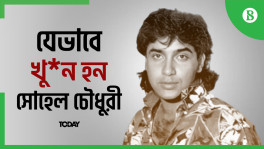CMSMEs have much better repayment records than big borrowers. Then why don’t banks lend to them?
Loan recovery from cottage, micro, small and medium enterprises (CMSMEs) are far better than from the bigger companies. But banks remain, generally, reluctant to give loans to the SMEs

In the recent financial stability assessment report of July-September 2021, Bangladesh Bank states that at the moment, the biggest risk to the country's banking sector is the collection of loans from top customers.
The sector has been beholden to top customers for several years. As a result, many of the bank's top executives and senior officials are spending most of their working hours trying to keep large customers from defaulting loans. And the concerned parties, including the governor of Bangladesh Bank, remain busy trying to lobby the big customers to repay defaulted loans.
According to BB's report, the debt of the banking sector had increased to Tk 11 lakh 85 thousand 210 crore, where defaulted loan is Tk 1 lakh 168 crore.
There are some large borrowers in the country who have taken loans from 30 to 35 different banks and financial institutions by themselves. At least two-thirds of the loans disbursed by banks are cooped up in the hands of only 100 institutions.
Conversely, loan recovery from cottage, micro, small and medium enterprises (CMSMEs) are far better than from the bigger companies. Even though the Covid-19 pandemic closed businesses for much of the year, small businesses have managed to pay off 77.68 percent of the target loans.
Still, banks are generally reluctant to give loans to the SMEs.
Why is that the case?
Professor Dr Momtaz Uddin Ahmed, the former chairman of the Department of Economics at the University of Dhaka said, "The banks consider SMEs a failure with low profitability and a high risk of default. But if you really look into it, the bigger companies are the main loan defaulters."
During the Covid-19 pandemic, the government declared special credit programmes where the banks were given Tk 20,000 crore to disburse among the CMSMEs. Momtaz Uddin Ahmed says "if Bangladesh Bank stops this credit programme, banks will never come forward to help the SMEs."

Ahsan H Mansur, the executive director of the Policy Research Institute of Bangladesh and chairman of Brac Bank, said, "It's true that the banks tend to give loans to bigger companies, even if they are the most egregious defaulters. But it is also true that most banks don't have a strong SME operation section. And that's because they don't have a better connection in the rural areas, where most of the CMSMEs are."
Most CMSME entrepreneurs live in rural areas; but unfortunately, our banks do not have enough branches in those areas. As a result, most entrepreneurs stay out of their radar, Mansur opined.
Having said that, Ahsan H Mansur pointed out that the government and the central bank also have to understand that risk and reward are intertwined: the bigger the risk, bigger the reward.
Mansur said, "What I mean is, banks are taking high risks with the bigger loans that they lend to the big companies for high reward. But here the return is comparatively irregular. On the other hand, loans to CMSMEs may not bring high reward, but they are regular."
According to him, the SME loan works almost like the microfinance model. The banks need a separate management team that will closely monitor the CMSMEs, maintain regular communication and collect the loan instalments at regular intervals. Otherwise, if entrepreneurs turn defaulters once, it becomes extremely tough for them to get out of that pit.
All these require a certain administrative expenditure that the banks do not want to expend. On the other hand, even if managing bigger companies takes up high administrative costs, the banks tend to lend to them as there is expectation of high return. This is another reason the banks are reluctant to help the CMSMEs.
On top of that, "Banks lend to both the SMEs and big borrowers at a maximum 9 percent interest rate, which means returns from big borrowers will be much higher. Then why would the banks prioritise the SMEs?" said Ahsan Mansur. According to him, the government is responsible for this. "That government needs to revise its policies which will adjust the rewards with the taken risk."
Moreover, many private banks are owned by the big companies that are the primary defaulters. Mansur pointed out, "For example, X company owns multiple companies and also a Y bank. So if you investigate, you will see that the Y bank is lending to X companies. That's how the entire cycle is repeating itself."
So no one is repaying their loans and, ultimately, the entire burden falls on common people.
"All it's doing is serving the defaulters with more and more opportunities to manipulate," said Ahsan H Mansur. And according to him, the government and the central bank should have been more watchful before approving such banks to operate.
Brac bank is doing quite good in this sector. Not just in the pandemic, this year the bank has fulfilled its target, as its SMEs portfolio has grown to 53 percent, while corporate and retail lending represented 30 percent and 18 percent respectively.
"Well, you have to understand that Brac has been working with microfinance from the very beginning. So it has a good network and also the mechanism to work among them. Most of the banks don't have such infrastructure," said Mansur.
How can CMSME loans be increased?
As Ahsan Mansur puts it, not every bank will be SME-focused. Some will be trade-focused, while some other banks may focus on corporate and retail loans. He added, "If you force everyone to promote SME loans, that won't be healthy. So the SME policy should promote SME-focused banks."
Professor Mumtaz, on the other hand, said that there is no SME-focused bank in Bangladesh. "The government should first establish a bank committed to SMEs. Otherwise, this sector will remain in the hands of a number of banks and that will deepen the scope of manipulation even more."
If it is not feasible to set up such banks, Ahsan Mansur suggests a solution. In the pandemic, the government had a loan-disbursement strategy for the CMSMEs. The government should ask the banks that were successful in disbursing the loans to become SME-focused because they have proven they are good at handling SMEs.


 Keep updated, follow The Business Standard's Google news channel
Keep updated, follow The Business Standard's Google news channel
















